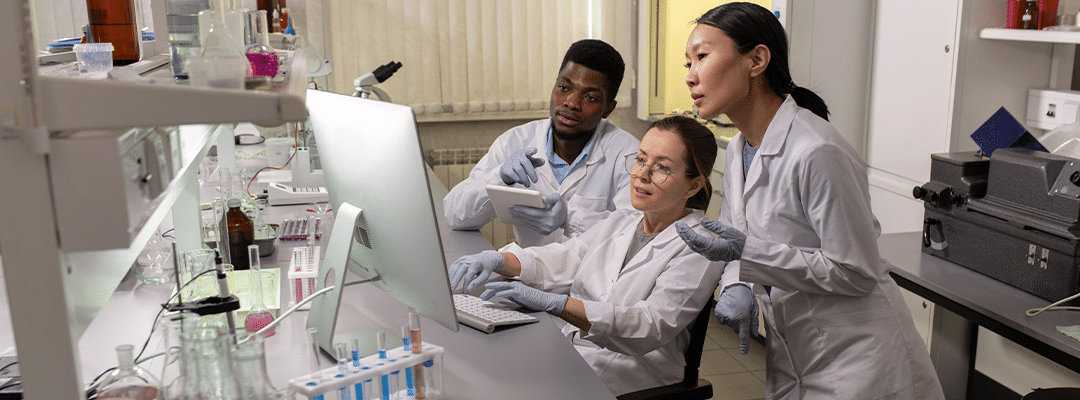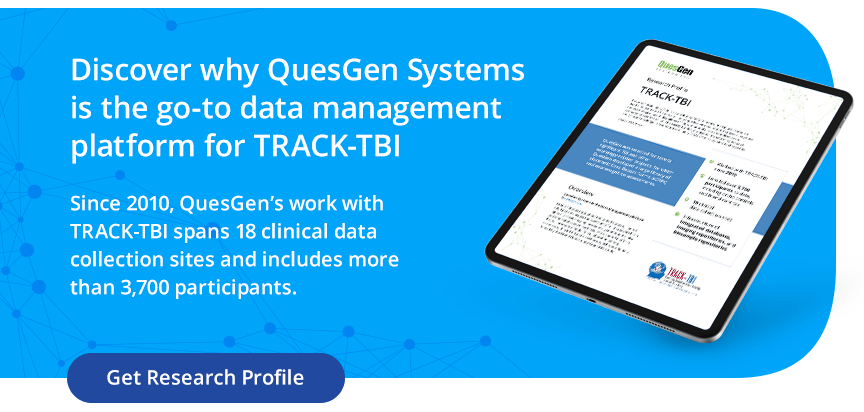Rethinking Research Models: How to Improve Brain Health Studies
by Mike Jarrett | Jan 07, 2022 | Data Management | comments

There are currently over 1,500 active or pre-launch clinical trials in the United States focused on brain health. That’s a lot of potential impact, but what if it could happen faster? That question should be an imperative; we need to be faster.
However, it’s more than speed.
Brain health studies also need higher participant counts and more diverse research perspectives. I’ve been working in this industry on the database side of things for the last decade and have seen this firsthand. Based on conversations with researchers, PhDs, physicians, PIs, and even families of TBI patients, I believe there are specific challenges – and innovative solutions – that we need to shine a spotlight on as they deserve to be talked about.
Three Challenges in Brain Health Research
Challenge: Access to Level One Trauma Centers for Brain Health Research Studies
One of the biggest hurdles for brain health studies is the high bar for entrance into level one trauma centers. With so much of acute injury research happening at these trauma centers, it’s tough to gain local access – often coming down to relationships (or lack thereof) the research team has.
This results in significantly impacting overall discovery speed, but it affects other important areas as well.
Challenge: Increased, More Reliable Participation for Brain Health Research Studies
Another problem we need to address is the increasing and scaling of participation. This also stems from the initial hurdle of level one trauma center access. The current funding paradigm is participant number-based, making this an important problem to solve.
With limited options for study location, research teams are often faced with a logistical challenge. That is, recruiting the right participants – those with a specific need – to the location where a research study is based. Depending on the study, a research team is either confined to that geographic area or forced to make travel and/or remote arrangements. This also contributes to the speed at which we can do research.
Challenge: Greater Diversity & Collaboration Among Research Team Members
In a similar way to its impact on participants, level one trauma center access can limit the size and diversity of research teams. In our work with TRACK-TBI , we’ve witnessed the benefits of a diverse, collaborative research team. By expanding who can contribute to a brain health study, a research team can move faster and have more perspectives in terms of expertise.
How Could We Overcome These Challenges? Exploring a Platform-Based Approach
In light of these challenges, what if we could remove the roadblock by simply having the system set up for quick deployment?
Think of a model like this as the “pre-plumbing” for brain health studies. In other words, we could create the environment for research to take place before we even know what question the research is addressing.
Begin to think about this process as taking an existing, multi-site brain health research group – such as TRACK-TBI – and turning that into a research platform for other studies. In TRACK-TBI’s case, that turns a single site into a brain health study with multiple centers open to early research – where discovery can happen faster with more participants and perspectives.

In addition to addressing the level one trauma center challenge, this expanded research model would increase participation that is both reliable and scalable. With more sites, research teams should have fewer limitations when it comes to participant recruitment and engagement.
The important thing to add here is that these additional sites would also be open to and prepared for brain health research studies.
Early-stage brain health studies will be able to plug-in to an existing research platform that knows what they do and how they do it – with multiple locations and research perspectives to collaborate with.
The Time is Right For a Breakthrough
Breakthroughs happen because of exponential increases. While our community is working tirelessly to move forward and make life-changing discoveries, brain health studies need a breakthrough. We need an exponential increase in speed, participant counts, researchers, study sites, and funding.
By rethinking the very research model we currently work from, those changes become more possible and repeatable. The “one-to-many” accelerator platform is ripe for consideration.
What do you think?
As the founder of QuesGen and a long-time research professional, I’m curious to hear your thoughts about this – and other ways we can increase the rate of scientific discovery. Our developing world depends on it!

